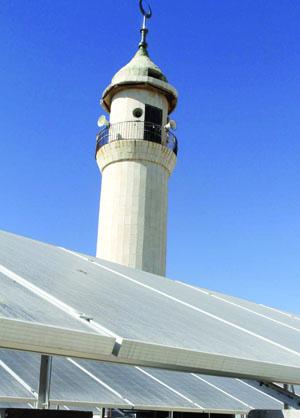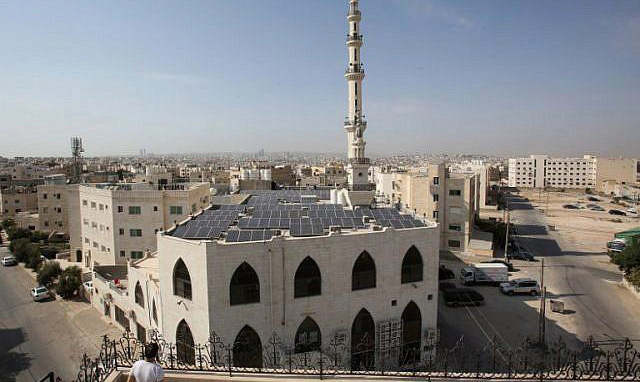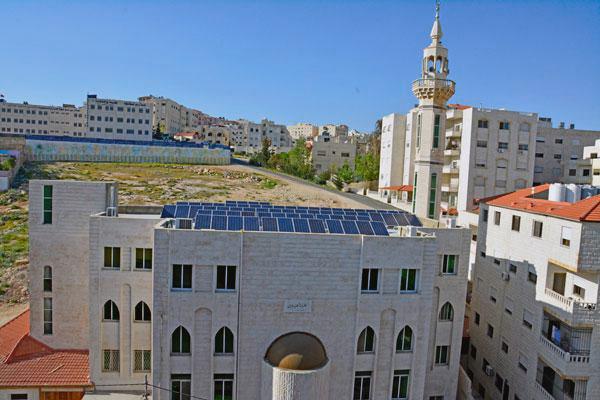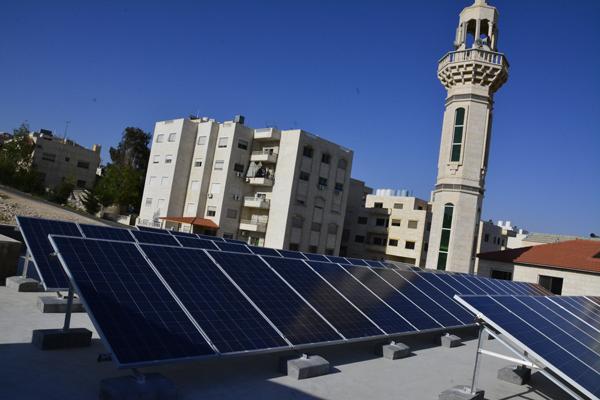You are here
Solar panels to be installed at mosques
By Mohammad Ghazal , Omar Obeidat - Jun 26,2014 - Last updated at Jun 26,2014

AMMAN — Photovoltaic solar systems for power generation will be installed at the Kingdom’s mosques under a project to be implemented in the course of this year, according to an energy ministry official.
The Ministry of Energy and Mineral Resources is collaborating with the Ministry of Awqaf and Islamic Affairs to implement the project, which entails installing such systems at the country’s 6,000 mosques, Ahmad Abu Saa, a representative of the renewable energy department at the ministry, said in an interview with The Jordan Times this week.
The project will start by covering 120 mosques and tenders will be soon floated to install such systems at other mosques across the country, he added.
“Mosques use large amounts of electricity and the project will help to significantly reduce their electricity bills as around 300 days in the year are sunny,” Abu Saa noted.
To be financed through grants and assistance, the project is a pioneering venture in the Middle East, he said.
“Based on the funds that we secure, we will go ahead with the project. The more finance we get the faster the project will be implemented. Some of the mosques will get such systems this year,” the energy official added.
One mosque in the capital already has solar panels installed thanks to its enterprising area residents.
Worshippers who frequent the Abu Ghaweileh Mosque in Amman’s Tlaa Al Ali neighbourhood donated around JD16,000 for the installation of a photovoltaic solar system.
By the beginning of April this year, the mosque started depending on solar power for lighting and air-conditioning.
Nidal Alayyan, the mosque’s imam, told The Jordan Times on Thursday that the initiative was launched by a group of young engineers who live in the neighbourhood, adding that the fund-raising campaign lasted for around two years.
The mosque’s electricity bill used to be JD1,000 a month, according to Alayyan, who noted that the mosque now sells surplus power to the main grid.
The government introduced regulations in 2012 paving the way for so-called net-metering, under which Jordanians can sell electricity produced by solar energy at a rate of 125 fils per kilowatt hour (kw/h).
In February last year, Abdul Salam Abbadi, who was the awqaf minister at the time, said the government spends over JD50 million a year on mosques, explaining that the funds go to building new mosques, renovation work, salaries of imams and preachers, and water and electricity bills.
According to official figures, around 150 mosques are built annually in the country.
Jordan, which imports about 96 per cent of its energy needs annually, is embarking on several projects in the field of renewable energy.
Renewable energy projects with total capacity of 1,650 megawatts are expected to be connected to the grid by 2020, according to the ministry.
Related Articles
AMMAN — The Ministry of Awqaf and Islamic Affairs said on Wednesday that it will begin work on establishing more three solar farms as per ef
AMMAN — Around 2,000 mosques in Jordan are expected to be fully running on renewable energy in two years, reducing their energy consumption
AMMAN –– Around 400 mosques in the Kingdom are currently generating power from solar energy, Awqaf Ministry Secretary General Abdul Munem Hi



















